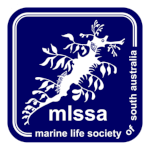Skip to content
For Collection of Marine Life
Should members participate in a dive with the intention of collecting creatures for a home aquarium or on request to set up an educational display then:
- Members shall at all times conduct themselves in a manner that will enhance the character and interests of the Society.
- The emphasis should be on observation, education and research.
- Members should discourage the collecting of native marine creatures by those without the knowledge to properly maintain them.
- Members who are new to collecting native creatures should be trained and supervised by an experienced collector.
- Diving trips to collect specimens must be conducted so as to comply with the laws relating to marine creatures, fishing and the particular dive site.
- The collector should ascertain which fish or animals are not suitable to be taken.
- Divers should restrict the total numbers of any particular species that may be taken at a particular dive site, or combination of sites, during a series of dives.
- Every care should be taken when collecting and handling specimens to minimise stress and damage, and to lessen the impact on wild stocks and their habitat.
- Each diver is asked to submit an accurate written list to the Society of the creatures they collect within seven days of the dive.
- Members should not use collecting dives for the collection of specimens for sale or profit.
- The name of MLSSA shall not be used in connection with the commercial collection or sale of native marine creatures.
- The collecting of specimens should only be undertaken for specific projects, and suitable facilities must be ready for them prior to the dive.
- Members will maintain their tanks and inhabitants in the best possible condition, so as to assist longevity.
- Neither wild caught nor captive-bred fish shall be translocated to any natural habitat.
- Ailing creatures should be humanely destroyed.
- All members should agree to abide by this Code of Ethics before participating in any dive to collect specimens.
